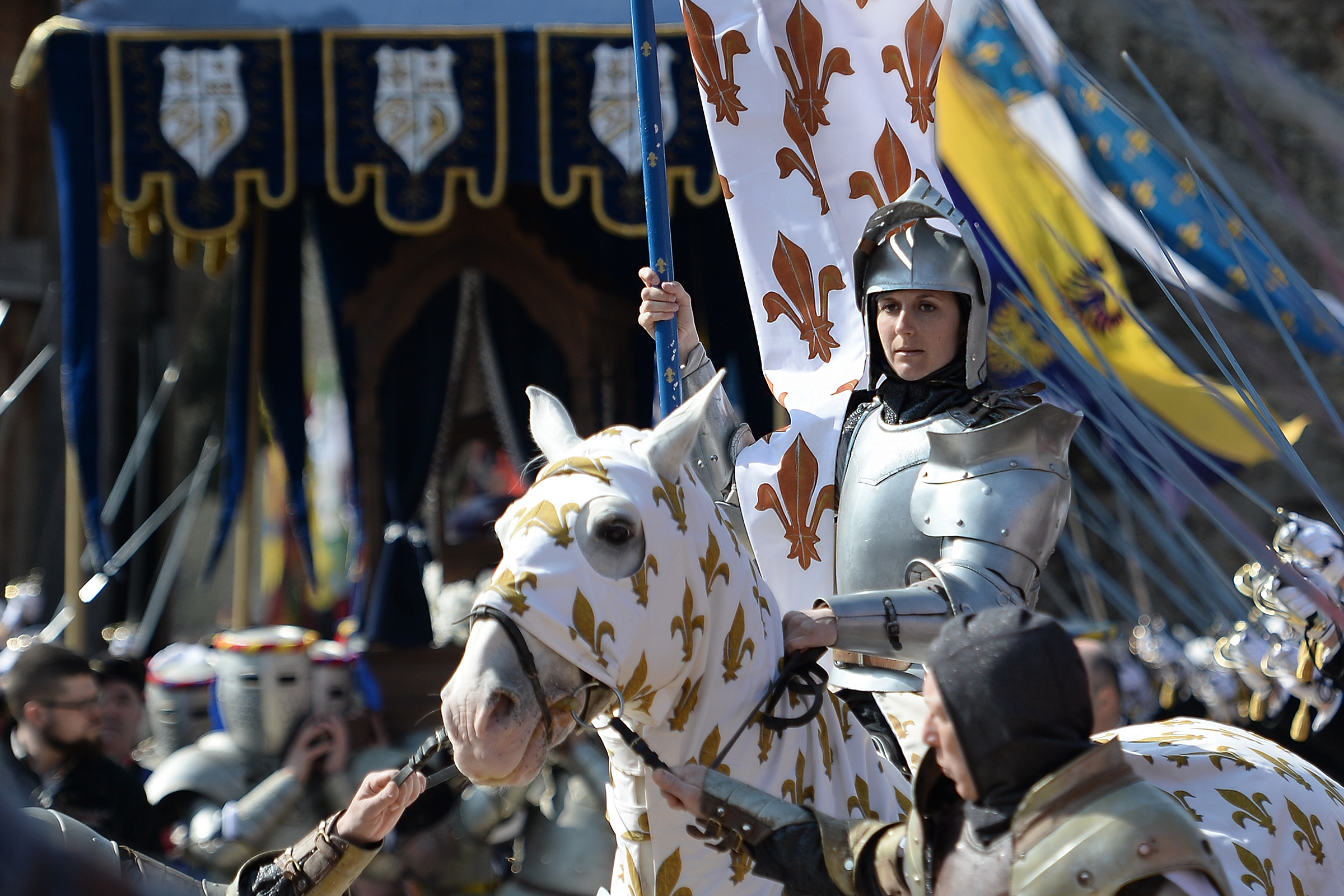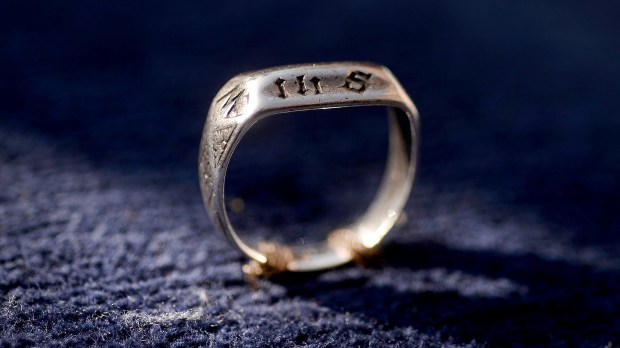The saga of St. Joan of Arc is well known: the 15th-century teenager from Orléans, France, discerned a call from heaven to lead the French army to victory against England. Upon her capture at Compiègne, she was subjected to trial and was eventually burned at the stake.
What is rarely mentioned in her story is the fact that during her trial in 1431, a ring, given to her by her parents on the occasion of her First Holy Communion, was stolen from Joan, and it remained in Britain for nearly six centuries.
Writing for Aleteia’s French edition, Matilda Rambaud reported on the auction of the historical artifact and religious relic:
Mentioned during the interrogations of the time, the brass ring, decorated with three crosses, bears the inscription “Jhesus Maria.” At her trial in 1431, Bishop Cauchon accused Joan of Arc of using it to accomplish false cures so as to convict her of witchcraft. He confiscated the offending object … then gave it (or sold it, according to different versions) to the English Cardinal Henry Beaufort. The Maid’s ring had never left the United Kingdom since.
That changed when Timeline Auctions in London offered the ring for bidding, and France’s Puy du Fou foundation went after it, ultimately winning the prize, and returning it to France in what would seem to be a happy ending:
Informed less than two days before the auction deadline, Nicolas de Villiers, current president of the Puy du Fou theme park, immediately flung himself into a race against time in order to raise the necessary funds. [He told Figaro magazine] “the Puy du Fou Foundation, as a corporation, could contribute up to 80 000€ but not beyond that. So we appealed to donors and we came up with the sum of 350,000€.” On the day of the auction, in London, the bidding soared and reached 376,833€ ($425,000). Following the sale, the identity of the buyer was kept secret. The only certainty confirmed by the spokesman for Timeline Auctions was: “It is going back to France.”

In an ceremony last Sunday, Puy du Fou unveiled the ring for exhibit, but — as usual where Joan of Arc is concerned — not without controversy. England is demanding the return of the ring, citing a lapse in paperwork. To which Puy du Fou is saying, essentially, “Come and get it!“:
“The British government has sent our lawyer an unprecedented demand: the return of the ring to London,” Mr de Villers told [the assembled crowd]. “We are told that the National Arts Council considers this ring part of those objects with, and I quote ‘high national symbolic value’ and as such should have part of a special legislation.” According to the demand, on purchasing the ring the Puy de Fou park should have obtained a special export licence necessary under European regulations. The U.K. has strict guidelines for exporting items of national and historical importance and requires a license for any antiques that are worth more than £39,219 and have been in the country for more than 50 years. Obtaining the licence is the responsibility of the exporter, not the auction house, and the process takes around a month. If the licence is deferred, a U.K. buyer then has an opportunity to match the price.
Nicolas de Villier confirmed that he had received a letter asking him to send the ring back and says,
“It is inconceivable that the ring leaves France or is put back on the market for a British buyer to put in another bid,” adding that Joan of Arc remains “one of the last bones of contention between France and England” and calling the return of the ring an act of “appeasement.” He also contended that the license was only needed if taken out of the European Union.
So England and France are at it again, and once more Joan of Arc is in the middle. We will watch with interest as this story develops. Meanwhile, where do you think the ring belongs?
Related: The chapel in which Joan left her sword resides at Marquette University.
Elizabeth Scalia is Editor-in-Chief of Aleteia’s English edition.

